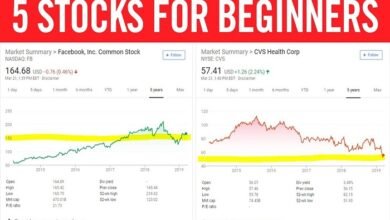Best Index Funds to Invest In: A Comprehensive Guide for 2024

Investing in the best index funds is a popular strategy for both novice and experienced investors. Index funds offer a way to achieve market returns with lower fees, broad diversification, and less risk compared to individual stock picking. If you’re considering where to put your money in 2024, understanding the best index funds to invest in is essential for building a robust and profitable portfolio.
What Are Index Funds?
Before diving into the best index funds to invest in, it’s crucial to understand what index funds are. An index fund is a type of mutual fund or exchange-traded fund (ETF) designed to track the performance of a specific market index, such as the S&P 500 or the Dow Jones Industrial Average. By investing in an index fund, you are essentially investing in all the companies that make up that index, which provides instant diversification. The best index funds to invest in typically have low expense ratios, track well-established indices, and offer long-term growth potential.
Why Choose Index Funds for Investing?
Choosing the best index funds to invest in offers several advantages over other investment strategies. First, index funds tend to have lower fees because they are passively managed, meaning they simply replicate the performance of a market index rather than trying to outperform it. Additionally, the best index funds to invest in provide broad exposure to the market, reducing the risk associated with investing in individual stocks. This makes them an ideal choice for long-term investors seeking stable growth.
How to Select the Best Index Funds to Invest In
Selecting the best index funds to invest in requires careful consideration of several factors. The first step is to determine your investment goals, risk tolerance, and time horizon. Are you looking for growth, income, or a mix of both? Once you have clarity on your objectives, you can begin researching the best index funds to invest in by analyzing their performance history, expense ratios, and the indices they track. It’s also important to consider whether you prefer mutual funds or ETFs, as both have different characteristics and benefits.
Top 5 Best Index Funds to Invest In 2024
As we approach 2024, certain index funds stand out as the best index funds to invest in. Below is a list of five top-performing index funds that offer strong returns, low fees, and broad market exposure:
- Vanguard 500 Index Fund (VFIAX)
The Vanguard 500 Index Fund is one of the best index funds to invest in due to its low expense ratio and track record of mirroring the S&P 500 index. - Schwab S&P 500 Index Fund (SWPPX)
Known for its extremely low fees, the Schwab S&P 500 Index Fund is a top contender among the best index funds to invest in for cost-conscious investors. - Fidelity ZERO Large Cap Index Fund (FNILX)
This fund is unique because it has zero expense ratio, making it one of the best index funds to invest in for those looking to minimize costs. - SPDR S&P 500 ETF Trust (SPY)
As one of the oldest and most popular ETFs, SPY is consistently ranked among the best index funds to invest in for its liquidity and ease of access. - iShares Core S&P 500 ETF (IVV)
The iShares Core S&P 500 ETF offers a low-cost, tax-efficient way to invest in the S&P 500, making it one of the best index funds to invest in for long-term growth.
Best Index Funds to Invest In for Different Goals
When considering the best index funds to invest in, it’s important to align your choice with your financial goals. Here are some recommendations based on different objectives:
- Growth-Oriented Investors:
For those focused on growth, the best index funds to invest in are those that track large-cap indices like the S&P 500 or NASDAQ-100, such as the Vanguard 500 Index Fund or the Invesco QQQ Trust (QQQ). - Income-Oriented Investors:
If you’re looking for income, the best index funds to invest in are bond index funds or those that focus on dividend-paying stocks, like the Vanguard Dividend Appreciation ETF (VIG). - Balanced Investors:
For a balanced approach, consider the best index funds to invest in that offer a mix of stocks and bonds, such as the Vanguard Balanced Index Fund (VBIAX).
The Role of Expense Ratios in Selecting Index Funds
One of the most critical factors when choosing the best index funds to invest in is the expense ratio. The expense ratio represents the annual fee that funds charge investors, which can significantly impact your returns over time. The best index funds to invest in typically have expense ratios below 0.10%. For example, the Fidelity ZERO Large Cap Index Fund has an expense ratio of 0%, making it highly attractive for cost-sensitive investors.
How to Invest in Index Funds
Investing in the best index funds is straightforward. You can invest through a brokerage account, retirement account, or directly through fund providers like Vanguard or Fidelity. The process typically involves selecting your desired fund, determining how much you want to invest, and setting up automatic contributions if you prefer a hands-off approach. Regularly reviewing your investments ensures that you remain aligned with your financial goals and adjust your portfolio as needed to include the best index funds to invest in.
Tax Considerations for Index Fund Investors
When investing in the best index funds to invest in, it’s important to consider the tax implications. Index funds are generally tax-efficient due to their low turnover rates, meaning fewer taxable events are generated. However, understanding the specific tax treatment of your investments is essential, especially if you’re investing in a taxable account. Some of the best index funds to invest in may also offer tax-advantaged options, such as investing within an IRA or 401(k).
Common Mistakes to Avoid When Investing in Index Funds
Even when investing in the best index funds to invest in, there are common mistakes that investors should avoid:
- Overlooking Expense Ratios:
Even small differences in expense ratios can have a significant impact on your long-term returns. Always choose the best index funds to invest in with the lowest possible fees. - Ignoring Asset Allocation:
While index funds offer diversification, it’s important to ensure that your overall portfolio is well-balanced across different asset classes. - Timing the Market:
One of the biggest mistakes is trying to time the market. The best index funds to invest in should be viewed as long-term investments, with a focus on consistent contributions and holding through market fluctuations. - Neglecting to Rebalance:
Over time, your portfolio may drift from its original allocation. Regularly rebalancing your portfolio ensures that you stay on track with your investment goals and maintain exposure to the best index funds to invest in. - Chasing Past Performance:
Past performance is not always indicative of future results. Focus on the fundamentals and long-term potential when selecting the best index funds to invest in.
Conclusion
Choosing the best index funds to invest in is a smart and efficient way to build wealth over time. By focusing on low-cost, well-diversified funds that align with your financial goals, you can achieve market returns with less risk and effort. As we move into 2024, the best index funds to invest in will continue to offer opportunities for growth, income, and financial stability. Remember to consider your personal circumstances, risk tolerance, and investment horizon when selecting the best index funds to invest in for your portfolio.
FAQs
1. What are the best index funds to invest in for beginners?
For beginners, the best index funds to invest in include those with broad market exposure and low fees, such as the Vanguard Total Stock Market Index Fund (VTSAX) or the Schwab S&P 500 Index Fund (SWPPX).
2. How do expense ratios affect my investment in index funds?
Expense ratios represent the annual fee charged by the fund. Lower expense ratios are preferred as they minimize costs, allowing more of your investment to grow over time. Always look for the best index funds to invest in with low expense ratios.
3. Can I lose money investing in the best index funds?
While investing in the best index funds to invest in generally reduces risk through diversification, there is still the potential for loss, especially in the short term. However, index funds are typically designed for long-term growth, and holding them over time can help mitigate losses.
4. Are there tax advantages to investing in index funds?
Yes, many of the best index funds to invest in are tax-efficient due to their low turnover. Investing in tax-advantaged accounts like IRAs or 401(k)s can further enhance your tax benefits.
5. How often should I review my index fund investments?
It’s advisable to review your investments at least annually. Rebalancing your portfolio and ensuring it still aligns with your financial goals and risk tolerance is key to successful investing in the best index funds to invest in.





